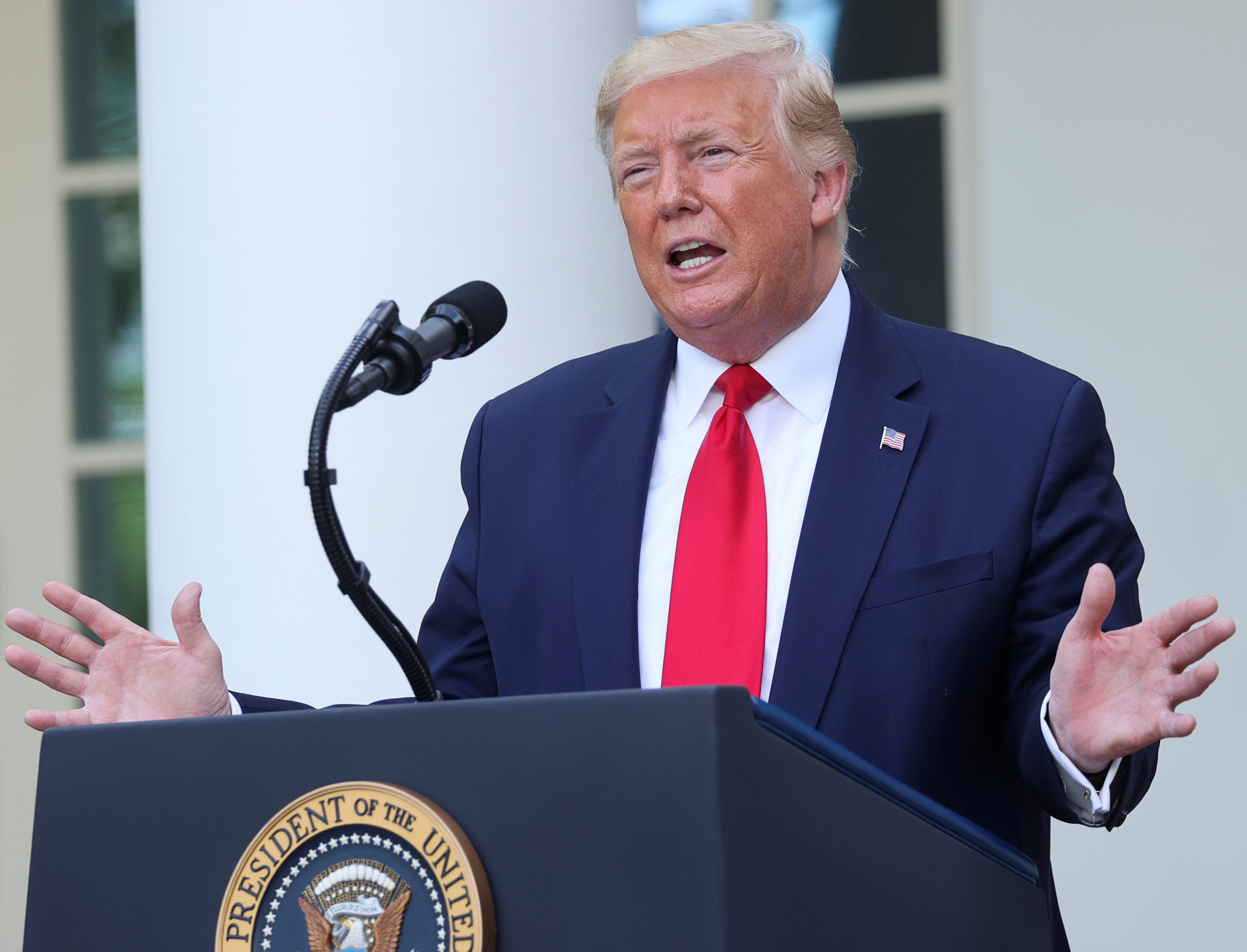U.S. President Donald Trump said on Tuesday the United States was working on a strong response to China’s planned national security legislation for Hong Kong and it would be announced before the end of the week.
China’s parliament is expected to approve a proposed security law that would reduce Hong Kong’s separate legal status on Thursday, calling into question the special economic status the territory currently enjoys under U.S. law.
At a White House news briefing, Trump was asked if he planned sanctions against China over Hong Kong and if he intended to put restrictions on visas for students and researchers from China.
“We’re doing something now. I think you’ll find it very interesting … I’ll be talking about it over the next couple of days,” he replied.
Pressed if this would include sanctions, he said: “No it’s something you’re going to be hearing about … before the end of the week, very powerfully I think.”
Trump did not elaborate.
China responded to the comments with a warning it would retaliate against any new measures.
“We will not accept any foreign interference, and to the wrong actions of outside powers in interfering in Hong Kong, we will take necessary countermeasures to hit back,” foreign ministry spokesman Zhao Lijian told a regular briefing.
“The issue … is purely China’s internal affair.”
Earlier, White House spokeswoman Kayleigh McEnany said he was displeased by the proposed security law for Hong Kong and found it “hard to see how Hong Kong can remain a financial hub if China takes over.”
Asked if this might mean an end to special economic treatment Washington affords to Hong Kong that has enabled it to maintain its position as a global financial center, McEnany said she had nothing to announce as to the precise response.
‘BIG MISTAKE’
Trump’s economic adviser, Larry Kudlow, called Beijing’s actions “very disturbing.”
“China is making a big mistake, frankly,” he said.
Kudlow said Washington would welcome back any American companies from Hong Kong or China’s mainland. “We will do what we can for full expensing and pay the cost of moving if they return their supply chains and their production to the United States,” he said.
Trump administration officials and lawmakers have been exploring ways to encourage U.S. firms to move supply chains for critical products back to the United States from China amid steadily worsening ties and bitter recriminations over the coronavirus pandemic, which began in China.
Proposals discussed include tax breaks, subsidies including a potential $25 billion “reshoring fund” and new local content rules.
U.S. Secretary of State Mike Pompeo, who is due to release a congressionally mandated assessment on whether Hong Kong enjoys sufficient autonomy to justify continued special economic treatment, said last week the legislation would be the “death knell” for the territory’s autonomy.
If the State Department decertifies the territory, it would fall to Trump whether to decide to end some, all or none of the privileges Hong Kong currently enjoys.
Trump has previously warned of a strong reaction and national security adviser Robert O’Brien said the legislation could lead to U.S. sanctions and threaten Hong Kong’s status as a financial hub.
Separately, the U.S. House of Representatives is expected on Wednesday to approve legislation to toughen Washington’s response to China’s crackdown on its Uighur Muslim minority, sending it to Trump’s desk, congressional sources said.
The U.S. Chamber of Commerce business lobby urged Beijing to de-escalate the situation, saying it would be “a serious mistake” to jeopardize Hong Kong’s special status.
(Reporting by Tim Ahmann, Lisa Lambert, Daphne Psaledakis, David Lawder, David Brunnstrom and Andrea Shalal; Additional reporting by Huizhong Wu in Beijing; writing by David Brunnstrom; editing by Jonathan Oatis and Cynthia Osterman)

























 Continue with Google
Continue with Google